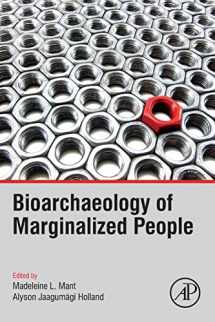
Bioarchaeology of Marginalized People
Book details
Summary
Description
Bioarchaeology of Marginalized People amplifies the voices of marginalized or powerless individuals. Following previous work done by physical anthropologists on the biology of poverty, this volume focuses on the voices of past actors who would normally be subsumed within a cohort or whose stories represent those of the minority. The physical effects of marginalization – manifest as skeletal markers of stress and disease – are read in their historical contexts to better understand vulnerability and the social determinants of health in the past. Bioarchaeological, archaeological, and historical datasets are integrated to explore the varied ways in which individuals may be marginalized both during and after their lifespan. By focusing on previously excluded voices this volume enriches our understanding of the lived experience of individuals in the past.
This volume queries the diverse meanings of marginalization, from physical or social peripheralization, to identity loss within a majority population, to a collective forgetting that excludes specific groups. Contributors to the volume highlight the histories of individuals who did not record their own stories, including two disparate Ancient Egyptian women and individuals from a high-status Indigenous cemetery in British Columbia. Additional chapters examine the marginalized individuals whose bodies comprise the Robert J. Terry anatomical collection and investigate inequalities in health status in individuals from Canada, the United States, and the United Kingdom. Modern clinical population health research is examined through a historical lens, bringing a new perspective to the critical public health interventions occurring today. Together, these papers highlight the role that biological anthropologists play both in contributing to and challenging the marginalization of past populations.


We would LOVE it if you could help us and other readers by reviewing the book
Book review



